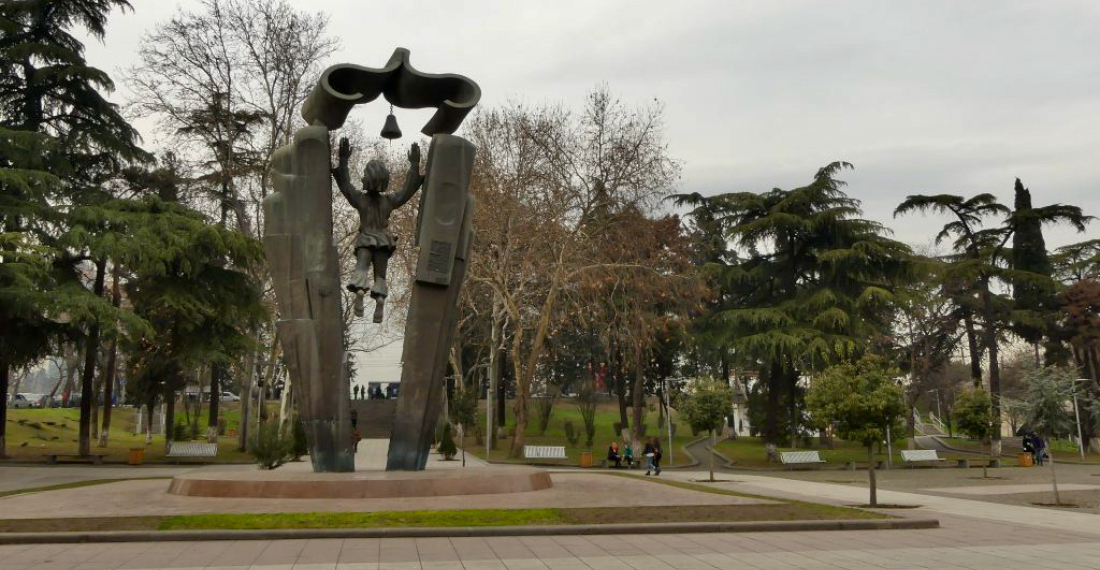Today is Georgian Language Day – an important day for the Georgian people. In this op-ed for commonspace.eu, Erekle Koplatadze gives a brief history of the Georgian language and explains why this day carries such significance in Georgia.
Today (14 April) Georgia celebrates Georgian Language Day (Mother Language Day). Whilst this day was first celebrated in 1990, its history goes back to the Soviet Union’s plans to scrap the official status of the language in the Soviet Republic of Georgia in 1978.
Under the Soviet Union, Georgia was one of the few Republics where the native language was also the official language of the republic. However, in 1978 the status of the language came under threat due to the newly adopted 1977 Soviet constitution, which would have removed Georgian as an official language.
This issue, unsurprisingly, turned out to be very sensitive issue for Georgian students, who marched in their thousands in the streets of Tbilisi in April of 1978. This all culminated in protests in front of the governmental buildings, and in what was then known as Tbilisi park – now known as the Dedaena or the Mother Language Park – on 14 April, the day that legislation was to be ratified on.
The then-First Secretary of the Georgian Communist Party Central Committee, Eduard Shevardnadze, first called for demonstrations to end. However, aware of the dead-end and how very sensitive the issue was for Georgians, Shevardnadze negotiated with the Kremlin to omit the clause that would strip Georgian language of its official status.
This was an unprecedented occurrence: mass demonstrations defied Soviet rule and reversed a decision. In 1990, Georgia first celebrated Georgian Language Day (Dedaena Day).
The Georgian Language
The Georgian language is one of the most unique languages still alive today. It belongs to the Kartvelian language group of South Caucasus languages, mostly spoken in Georgia. Although, throughout its history, the language adopted many foreign words, it remains distinct from other languages and language groups.
The Georgian language has a rich history, with the first tangible inscription of Georgian script dating back to the 5th century. However, considering the intricacies of the manuscript, it is argued that the Georgian written language dates even further back.
Throughout its history, the Georgian script evolved into three distinct alphabets and even though only one of them – Mkhedruli – became the state language, the other two scripts are still widely used either by scholars or the Georgian clergy. The script is unique to the Georgian language and does not resemble other scripts, it has 33 letters, and is read and pronounced as written from left to right.
Georgian is currently spoken by slightly more than 5 million people and while it is primarily spoken in Georgia, Georgian remains mother tongue for many ethnic Georgian in Northeastern Turkey and for a small ethnic minority in a village in Fereydan in Iran. However, the number of native Georgian speakers outside Georgia is rapidly decreasing.
Due to its uniqueness and rich history, Georgian alphabets were added to UNESCO's Representative List of Intangible Cultural Heritage of Humanity in 2016.







